The Imam debates with the Hindu High Priest
- Details
- Hits: 13276

The Imam debates with the Hindu High Priest
The heads of the creeds failed to render the Imam incapable, and feebleness appeared on their faces. There was none except the Zoroastrian high priest, so the Imam turned to him and asked him: "Tell me about Zoroaster, whom you claim that he is a prophet; what is your evidence for his Prophethood?"
The Hindu high priest said: "We did not see him, but the tales of our ancestors informed us that he had legalized for us what no other person before had made legal."
The Imam asked him: "You believed in the tales which came to you about him, so you followed him, didn't you?
"Yes," he answered.
The Imam established against him undeniable argument, saying: "This is the case with all other nations. Tales had come to them about what the prophets had accomplished, what MÅ«sÄ, 'ĪsÄ, and Mohammed, may Allah bless him and his family, had all brought them, so why did you not believe in any of these prophets, having believed in Zoroaster through the tales that came to you about him informing that he brought forth what others did not?"
Perplexity and astonishment dominated the Zoroastrian high priest; he was perplexed and had nothing to say. Accordingly, the Prophet's grandson (i.e. al-RidÄ) turned to the chief representatives of those creeds and said to them: "People, if there is among you someone who opposes Islam and wants to question (me), let him put forth any question (to me) without any shame![1]"
These debates silenced the anti-Islam forces and clearly established the great scientific abilities with which Allah endowed the ImÄm, and which demonstrated the correctness of the creed of the Shi'ites, who maintained that Allah endowed the ImÄms of the Ahal al-Bayt, peace be on them, with scientific abilities, and that the ImÄms were the most learned of that community, not only in the legislative fields but also in all scientific ones.
The associations in KhurasÄn took great care of these debates through which ImÄm al-RidÄ, peace be on him, overcame the chief representatives of the creeds. Meanwhile the debates moved al-Ma'mÅ«n's feelings and sentiments, and he harbored malice and enmity against the ImÄm, peace be on him. That is because he intended to render the ImÄm incapable of answering during the debates in order to use his incapability as means for defaming him and removing him from the office of regency.
As a result, al-Ma'mÅ«n spared no effort to get rid of ImÄm al-RidÄ. He thought that he had no means to get rid of him except assassinating him by putting poison in food. We will explain the matter of assassinating the ImÄm by giving more details in the chapters that follow.
--------------------------------------------------------------------------------
[1] Al-IhtijÄjj, vol. 2, pp. 199-212. 'UyÅ«n AkhbÄr al-RidÄ, vol. 2, p. 154-168.
(214)
The ImÄm debates with an Atheist
An atheist, experienced in atheism and unbelief, hurried to attend ImÄm al-RidÄ's session in which was a group of people. The ImÄm turned to the atheist and asked him: "Do you see that if the correct view is your view ¾and it is not your view ¾then are we not equal? All that we have prayed, fasted, given the alms and declared of our convictions will not harm us?"
The atheist kept silence because of this undeniable argument, for if the matter was as the atheists said that there was no god, then prayer and fasting would not harm the monotheists.
After that the ImÄm added, saying: "If the correct view is our view ¾and it is our view ¾then have you not perished and we gained salvation?"
The ImÄm wanted to say that if the atheists came to know that there was Almighty Creator, they would be perished, bring disgrace on themselves, and face a painful punishment. As for the believers and the pious, they would be successful.
The atheist asked the ImÄm, peace be on him, the following questions:
Q1: "May Allah have mercy on, let me know how is He (Allah) and where is He?"
Ans. 1: "Surely the opinion you have adopted is mistaken. He (Allah) determined the 'where' and he was when there was no where; He fashioned the 'how' and He was when there was no 'how'. So He is not known through 'howness' or 'whereness' or through any form of sense perception; nor can He be gauged by anything."
Indeed Allah is the Light of the heavens and earth, for it is impossible for Him to be distinguished by the 'where', 'how' and the rest qualities of the possible being who will perish sooner or later. As for Allah, the Glorified, He is not perceived by the senses; nor is He gauged by anything.
Q2: "So then He is nothing if He cannot be perceived by any of the senses?"
(215)
Ans. 2: "Woe unto you! When your senses fail to perceive Him, you deny His lordship. But when our senses fail to perceive Him, we know for certain that He is our Lord and that He is something different from other things."
The perception of the senses is limited in quantity and quality as well as the senses do not perceive many possible beings. For example, they do not perceive the reality of soul, then how do they perceive the Necessary Being, the Exalted, the Holy?
Q3: "Tell me, when He was?"
Ans. 3: "Tell me when He was not, and then I will tell you when He was."
The ImÄm, peace be on him, criticized the atheist for his question, for Allah, the Exalted is a brilliant reality which every one comprehends through His signs, His great creation, and His marvelous creatures. He is in every stage of existence, and it is impossible to say: "When He was?"
Q4: "Then what is the proof of Him?"
Ans. 4: "Surely when I contemplate my body and it is impossible for me to increase or decrease its breadth and height, or to keep unpleasant things away from it or draw benefits to it, then I know that this structure has a maker and I acknowledge Him ¾even though that which I had seen of the rotation of the celestial sphere through His power, the producing of clouds; the turning about of the winds; the procession of the sun, the moon and the stars; and others of his wondrous and perfectly created signs, had already made me know that (all) this has a Determiner and Producer."
Surely, every atom of this world is a proof of the existence of the great Creator, who has made them.
If man carefully considers his own body and the wonderful systems and cells wherein, he will certainly believe in Allah, the Most High, just as it has been mentioned in the tradition: "He who knows his own body knows his Lord." Allah, the Exalted, created man in the best manner. It is impossible that there is increase or decrease in his organs. It is well know that this surprisingly accurate creation of man is evidence for the existence of Allah, for effect is proof of cause as logicians say.
(216)
Among the signs of Allah are the rotation of the celestial sphere, the producing of clouds; the turning about of the winds; the procession of the sun and the moon. He, the Exalted, says: "Neither it is allowable to the sun that it should overtake the moon, nor can the night outstrip the day; and all float on in a sphere." Glory belongs to Allah! Many signs are evidence for His existence.
Q5: "Then why does the sense of sight not perceive Him?"
Ans. 5: "Because of the difference between Him and His creatures, who are perceived by the vision of the eyes, whether their own or others. Then He is greater than that sight should perceive Him, imagination encompass Him, or the power of reason delineate Him."
The sense of sight and rest of man's senses are limited, then how can they, perceive, see, and encompass the Almighty Creator? Rather they perceive and comprehend some possible beings.
Q6: "Then define His limits for me."
Ans. 6: "He has no limits."
Limitation belongs to possible beings. As for the Necessary Being, it is impossible for Him to be limited.
Q7: "Why?"
Ans. 7: "Because every limited thing ends at a limit. If limitation is possible, then increase is possible. If increase is possible, then decrease is possible. So He is unlimited. He neither increases nor decreases. Nor is He capable of being divided or imagined."
The ImÄm, peace be on him, provided evidence of that it was impossible for man to define the limits of the Almighty Necessary Being. That is because limitation, as we have mentioned, is one of the qualities of the possible beings.
Q8: "Then tell me about your saying that He is Subtle, Hearing, Seeing, Knowing, and Wise. Can He be the Hearing without ears, the Seeing without eyes, the Subtle without working with the hands and the Wise without workmanship (san'a)?"
Ans. 8: "Surely a person among us is subtle in accordance with
(his) skill in workmanship. Have you not seen the man who
undertakes a task and is subtle in his handling of it, so that it is said:
'How subtle is so and so!' Then how should it not be said of the
(217)
Majestic Creator that He is subtle, when He creates a subtle and majestic creation, places in its living creatures their souls, creates every kind different in form from its own kind, and none resembles another? Each possesses in the composition of its form a subtlety from the Subtle and Aware Creator.
"Then we look upon the trees and their bearing of delicate things, whether edible or inedible, and we said at that: 'Surely our Creator is Subtle, (but) not like the subtlety of His creatures in their workmanship.' And we said: 'Surely He is Hearing, for not hidden from Him are the sounds of His creatures between the Throne and the earth, from a mote to what is larger than it, and in the land and the sea. And their words are not confused by Him.' At that we said: 'Surely He is Hearing, but not through ears.'
"Then we said: 'Surely He is Seeing, but not through eyes, for He sees the trace of a black speck on a dark night on a black stone. He sees the tracks of an ant on a pitch-black night. He sees what is harmful for it and what beneficial, and the result of its cohabitation, and its young and descendants.' And at that we said: 'Surely He is Seeing, but not like the sight of His creatures.'[1]"
The ImÄm debates with 'Ali Bin al-Jahm
Among the ImÄm's debates with the rhetoricians and men of religions is that which took place between him and 'Ali b. al-Jahm, who asked the ImÄm, peace be on him, saying: "Do you believe in the infallibility of the prophets?"
"Yes," replied the ImÄm.
He opposed the ImÄm with these verses, saying:
"What do you say about these words of Allah, the Great and Almighty: And Adam disobeyed his Lord, so his life became evil (to him)[2], these words of Him, the Great and Almighty: And (remember)
--------------------------------------------------------------------------------
[1] There is an addition to this narration mentioned in al-IhtijÄjj. Without doubt that this narration is forged, for the expression is not accurate, and al-Shaykh al-SadÅ«q has turned aside from it.
[2] Qur'Än, 20, 121.
(218)
DhÄ al-NÅ«n when he departed in wrath; he imagined that We had no power over him[1], His words, the Great and Almighty, concerning YÅ«suf: And (with passionate lust) did she desire him, and he would have desired her[2], His words, the Great and Almighty, concerning DÄwud: And DÄwud was sure that We had tried him [3], and His words, the Exalted, concerning His Prophet, Mohammed, may Allah bless him and his family: And you concealed in your soul what Allah would bring to light? [4] "
The ImÄm criticized 'Ali b. al-Jahm for interpreting the verses according to his viewpoints without knowledge of their explanation and interpretation. He recited to him their interpretation, saying: "Woe unto you, 'Ali! Fear Allah. Do not ascribe transgressions to the prophets, and do not interpret Allah's Book according to your opinion, for Allah, the Great and Almighty, says: And none knows its interpretation except Allah and those deeply grounded in knowledge.'[5]"
The ImÄm began interpreting these verses, saying: "As for these words of Him, the Great and Almighty, concerning Adam: And Adam disobeyed his Lord, so his life became evil (to him), surely Allah, the Great and Almighty, created Adam as argument on His earth and vicegerent in His land. He did not create him for the Garden. Adam's transgression took place in the Garden, not on earth, and his infallibility in question should be on earth, that the ordinations of Allah's command may be complete. When he was descended to earth and was appointed as an argument and vicegerent, he was protected from transgression with these words of Him, the Great and Almighty: Allah did indeed choose Adam and NÅ«h, the family of IbrÄhim, and the family of 'UmrÄn above all people.[6]
--------------------------------------------------------------------------------
[1] Ibid., 21, 87.
[2] Ibid., 12, 24.
[3] Ibid., 38, 24.
[4] Ibid., 33, 37.
[5] Ibid., 3, 7.
[6] Ibid., 3, 3.
(219)
"As regarding His words, the Great and Almighty: And (remember) DhÄ al-NÅ«n when he departed in wrath; he imagined that We had no power over him; the meaning of he imagined that We had no power over him is that he realized that Allah was not going to sustain him. Have you not heard these words of Him, the Exalted: But when He tries him (differently), then straitens to him his means of subsistence? [1] Had he thought that Allah was unable to overpower him, then he would have committed apostasy (kufr).
"As for His words, the Great and Almighty, concerning YÅ«suf: And (with passionate lust) did she desire him, and he would have desired her, they are that she wanted to commit a sin while he desired to kill her if she forced him; therefore, Allah saved him from the deed of killing her and its terrible consequences, and this is His words, the Great and Almighty: Thus (it was) that We might turn away from him evil and indecency, meaning killing and fornication."
The ImÄm turned to 'Ali b. al-Jahm and asked him: "What did those before you say about him?"
'Ali b. al-Jahm started reciting to the ImÄm what had been handed down from them on interpreting the verse, saying: [They said:] "Surely DÄwud, peace be on him, was praying in his mihrab. Iblis appeared in front of him in the form of the most beautiful bird. DÄwud cut his prayer and went to take the bird. The bird went out to the house, and then it went out to the top (of the house). DÄwud descended looking for it. The bird alighted in the house of Uryah b. HanÄn. DÄwud followed the tacks of the bird, and suddenly there was Uryah's wife washing. When he looked at her, he fell in love with her. As for Uryah, he had been on a raid. DÄwud wrote to his companion: 'Place Uryah in front of the coffin,' and he was placed in front of it. Uryah defeated the polytheists. DÄwud find that difficult, so he wrote to him again in order to place Uryah in front of the coffin. Uryah was placed in front of it and he was killed, so DÄwud married his wife."
In this narration fornication and the forbidden have been attributed to one of the prophets of Allah, the Most High. Besides the
-------------------------------------------------------------------------------
[1] Ibid., 89, 16.
(220)
narration contains a fable which is that DÄwud followed the bird. As for the ImÄm, peace be on him, he was displeased with this narration when he heard it and said: "We belong to Allah and to Him is our return! You have ascribed one of Allah's prophets to neglecting his prayers and (accused him of) going out and looking for the tracks of the bird, fornication and killing!"
'Ali b. al-Jahm asked the ImÄm to explain the matter to him, saying: "Son of Allah's Apostle, what was DÄwud's sin?"
The ImÄm told him about the true story of DÄwud, saying: "DÄwud thought that he was more learned than the rest of Allah's creatures, hence Allah, the Great and Almighty, sent him some angels and they climbed the mihrab and said to him: When they entered in upon DÄwud and he was frightened at them, they said: Fear not; two litigants, of whom one has acted wrongfully towards the other; therefore, decide between us with justice, and do not act unjustly, and guide us to the right way: Surely this is my brother; he has ninety-nine ewes and I have a single one; but he said, make it over to me, and he has prevailed against me in discourse. DÄwud hurried to decide the case for the plaintiff when he said: Surely he has been unjust to you in demanding your ewe (to add) to his own ewes. He did not asked the plaintiff for the evidence for that; nor did he turn to the defendant and asked him: 'What do you say?' It was an error only within the framework of the case and was not as you thought. Have you not heard that Allah, the Great and Almighty, say: DÄwud, surely We have made you a ruler in the land; so judge between men with justice and do not follow desire."
Ibn al-Jahm asked the ImÄm to tell him about the story of DÄwud with Uryah, saying: "Then, son of Allah's Apostle, what is DÄwud's story with Uryah."
The ImÄm, peace be on him, started explaining to him DÄwud's story, saying: "In the days of DÄwud, a widow never get married after the death of her husband. DÄwud, peace be on him, was the first man whom Allah permitted to marry the widow whose husband had been killed. Accordingly, he married Uryah's wife after he had been killed, and her waiting period had been over. This made the people accused DÄwud of killing Uryah."
(221)
As for Mohammed, peace be on him, and these words of Him, the Great and Almighty: And you concealed in your soul what Allah would bring out to light, and you feared men, and Allah had a greater right that you should fear Him [1], surely Allah made His prophet know the names of his wives in this world and the next, and that they were the mothers of the believers. One of them whom Allah made him know was Zaynab daughter of Jahsh, who was then the wife of Zayd b. HÄritha. He (the Prophet) concealed her name in his soul and did not declare it, lest a hypocrite would say: 'He (the Prophet) says that one of his wives, who are the mothers of the believers, is in a man's house (i.e. she is still the man's wife). He feared the words of the hypocrites, hence Allah, the Great and Almighty, said to him: and you feared men, and Allah had a greater right that you should fear Him, namely in your own soul. Allah, the Great and Almighty, never undertook marrying any of His creatures except marrying HawuÄ' (Eve) to Adam, and Zaynab (daughter of Jahsh) to Allah's Messenger, may Allah bless him and his family, by the virtue of His words: But when Zayd had accomplished his want of her, We gave her to you as a wife¬, and FÄtima to 'Ali, peace be on him."
When 'Ali b. al-Jahm heard that, he wept and said: "Son of Allah's Apostle, I am going to return to Allah, the Great and Almighty, in repentance and will never say after this day of mine anything about the prophets of Allah except what you have mentioned.[2]"
These are some of the ImÄm's debates with the leading philosophers and scholars of various religions. The debates have established his supremacy over them, and they admitted his excellence and admitted their feebleness before him, for he, the peace of Allah be on him, had abundant scientific abilities.
--------------------------------------------------------------------------------
[1] Ibid., 33, 37.
[2] 'UyÅ«n AkhbÄr al-RidÄ, vol. 1, pp. 192-195
The Imam asked him: "You believed in the tales which came to you about him, so you followed him, didn't you?
"Yes," he answered.
The Imam established against him undeniable argument, saying: "This is the case with all other nations. Tales had come to them about what the prophets had accomplished, what MÅ«sÄ, 'ĪsÄ, and Mohammed, may Allah bless him and his family, had all brought them, so why did you not believe in any of these prophets, having believed in Zoroaster through the tales that came to you about him informing that he brought forth what others did not?"
Perplexity and astonishment dominated the Zoroastrian high priest; he was perplexed and had nothing to say. Accordingly, the Prophet's grandson (i.e. al-RidÄ) turned to the chief representatives of those creeds and said to them: "People, if there is among you someone who opposes Islam and wants to question (me), let him put forth any question (to me) without any shame![1]"
These debates silenced the anti-Islam forces and clearly established the great scientific abilities with which Allah endowed the ImÄm, and which demonstrated the correctness of the creed of the Shi'ites, who maintained that Allah endowed the ImÄms of the Ahal al-Bayt, peace be on them, with scientific abilities, and that the ImÄms were the most learned of that community, not only in the legislative fields but also in all scientific ones.
The associations in KhurasÄn took great care of these debates through which ImÄm al-RidÄ, peace be on him, overcame the chief representatives of the creeds. Meanwhile the debates moved al-Ma'mÅ«n's feelings and sentiments, and he harbored malice and enmity against the ImÄm, peace be on him. That is because he intended to render the ImÄm incapable of answering during the debates in order to use his incapability as means for defaming him and removing him from the office of regency.
As a result, al-Ma'mÅ«n spared no effort to get rid of ImÄm al-RidÄ. He thought that he had no means to get rid of him except assassinating him by putting poison in food. We will explain the matter of assassinating the ImÄm by giving more details in the chapters that follow.
--------------------------------------------------------------------------------
[1] Al-IhtijÄjj, vol. 2, pp. 199-212. 'UyÅ«n AkhbÄr al-RidÄ, vol. 2, p. 154-168.
(214)
The ImÄm debates with an Atheist
An atheist, experienced in atheism and unbelief, hurried to attend ImÄm al-RidÄ's session in which was a group of people. The ImÄm turned to the atheist and asked him: "Do you see that if the correct view is your view ¾and it is not your view ¾then are we not equal? All that we have prayed, fasted, given the alms and declared of our convictions will not harm us?"
The atheist kept silence because of this undeniable argument, for if the matter was as the atheists said that there was no god, then prayer and fasting would not harm the monotheists.
After that the ImÄm added, saying: "If the correct view is our view ¾and it is our view ¾then have you not perished and we gained salvation?"
The ImÄm wanted to say that if the atheists came to know that there was Almighty Creator, they would be perished, bring disgrace on themselves, and face a painful punishment. As for the believers and the pious, they would be successful.
The atheist asked the ImÄm, peace be on him, the following questions:
Q1: "May Allah have mercy on, let me know how is He (Allah) and where is He?"
Ans. 1: "Surely the opinion you have adopted is mistaken. He (Allah) determined the 'where' and he was when there was no where; He fashioned the 'how' and He was when there was no 'how'. So He is not known through 'howness' or 'whereness' or through any form of sense perception; nor can He be gauged by anything."
Indeed Allah is the Light of the heavens and earth, for it is impossible for Him to be distinguished by the 'where', 'how' and the rest qualities of the possible being who will perish sooner or later. As for Allah, the Glorified, He is not perceived by the senses; nor is He gauged by anything.
Q2: "So then He is nothing if He cannot be perceived by any of the senses?"
(215)
Ans. 2: "Woe unto you! When your senses fail to perceive Him, you deny His lordship. But when our senses fail to perceive Him, we know for certain that He is our Lord and that He is something different from other things."
The perception of the senses is limited in quantity and quality as well as the senses do not perceive many possible beings. For example, they do not perceive the reality of soul, then how do they perceive the Necessary Being, the Exalted, the Holy?
Q3: "Tell me, when He was?"
Ans. 3: "Tell me when He was not, and then I will tell you when He was."
The ImÄm, peace be on him, criticized the atheist for his question, for Allah, the Exalted is a brilliant reality which every one comprehends through His signs, His great creation, and His marvelous creatures. He is in every stage of existence, and it is impossible to say: "When He was?"
Q4: "Then what is the proof of Him?"
Ans. 4: "Surely when I contemplate my body and it is impossible for me to increase or decrease its breadth and height, or to keep unpleasant things away from it or draw benefits to it, then I know that this structure has a maker and I acknowledge Him ¾even though that which I had seen of the rotation of the celestial sphere through His power, the producing of clouds; the turning about of the winds; the procession of the sun, the moon and the stars; and others of his wondrous and perfectly created signs, had already made me know that (all) this has a Determiner and Producer."
Surely, every atom of this world is a proof of the existence of the great Creator, who has made them.
If man carefully considers his own body and the wonderful systems and cells wherein, he will certainly believe in Allah, the Most High, just as it has been mentioned in the tradition: "He who knows his own body knows his Lord." Allah, the Exalted, created man in the best manner. It is impossible that there is increase or decrease in his organs. It is well know that this surprisingly accurate creation of man is evidence for the existence of Allah, for effect is proof of cause as logicians say.
(216)
Among the signs of Allah are the rotation of the celestial sphere, the producing of clouds; the turning about of the winds; the procession of the sun and the moon. He, the Exalted, says: "Neither it is allowable to the sun that it should overtake the moon, nor can the night outstrip the day; and all float on in a sphere." Glory belongs to Allah! Many signs are evidence for His existence.
Q5: "Then why does the sense of sight not perceive Him?"
Ans. 5: "Because of the difference between Him and His creatures, who are perceived by the vision of the eyes, whether their own or others. Then He is greater than that sight should perceive Him, imagination encompass Him, or the power of reason delineate Him."
The sense of sight and rest of man's senses are limited, then how can they, perceive, see, and encompass the Almighty Creator? Rather they perceive and comprehend some possible beings.
Q6: "Then define His limits for me."
Ans. 6: "He has no limits."
Limitation belongs to possible beings. As for the Necessary Being, it is impossible for Him to be limited.
Q7: "Why?"
Ans. 7: "Because every limited thing ends at a limit. If limitation is possible, then increase is possible. If increase is possible, then decrease is possible. So He is unlimited. He neither increases nor decreases. Nor is He capable of being divided or imagined."
The ImÄm, peace be on him, provided evidence of that it was impossible for man to define the limits of the Almighty Necessary Being. That is because limitation, as we have mentioned, is one of the qualities of the possible beings.
Q8: "Then tell me about your saying that He is Subtle, Hearing, Seeing, Knowing, and Wise. Can He be the Hearing without ears, the Seeing without eyes, the Subtle without working with the hands and the Wise without workmanship (san'a)?"
Ans. 8: "Surely a person among us is subtle in accordance with
(his) skill in workmanship. Have you not seen the man who
undertakes a task and is subtle in his handling of it, so that it is said:
'How subtle is so and so!' Then how should it not be said of the
(217)
Majestic Creator that He is subtle, when He creates a subtle and majestic creation, places in its living creatures their souls, creates every kind different in form from its own kind, and none resembles another? Each possesses in the composition of its form a subtlety from the Subtle and Aware Creator.
"Then we look upon the trees and their bearing of delicate things, whether edible or inedible, and we said at that: 'Surely our Creator is Subtle, (but) not like the subtlety of His creatures in their workmanship.' And we said: 'Surely He is Hearing, for not hidden from Him are the sounds of His creatures between the Throne and the earth, from a mote to what is larger than it, and in the land and the sea. And their words are not confused by Him.' At that we said: 'Surely He is Hearing, but not through ears.'
"Then we said: 'Surely He is Seeing, but not through eyes, for He sees the trace of a black speck on a dark night on a black stone. He sees the tracks of an ant on a pitch-black night. He sees what is harmful for it and what beneficial, and the result of its cohabitation, and its young and descendants.' And at that we said: 'Surely He is Seeing, but not like the sight of His creatures.'[1]"
The ImÄm debates with 'Ali Bin al-Jahm
Among the ImÄm's debates with the rhetoricians and men of religions is that which took place between him and 'Ali b. al-Jahm, who asked the ImÄm, peace be on him, saying: "Do you believe in the infallibility of the prophets?"
"Yes," replied the ImÄm.
He opposed the ImÄm with these verses, saying:
"What do you say about these words of Allah, the Great and Almighty: And Adam disobeyed his Lord, so his life became evil (to him)[2], these words of Him, the Great and Almighty: And (remember)
--------------------------------------------------------------------------------
[1] There is an addition to this narration mentioned in al-IhtijÄjj. Without doubt that this narration is forged, for the expression is not accurate, and al-Shaykh al-SadÅ«q has turned aside from it.
[2] Qur'Än, 20, 121.
(218)
DhÄ al-NÅ«n when he departed in wrath; he imagined that We had no power over him[1], His words, the Great and Almighty, concerning YÅ«suf: And (with passionate lust) did she desire him, and he would have desired her[2], His words, the Great and Almighty, concerning DÄwud: And DÄwud was sure that We had tried him [3], and His words, the Exalted, concerning His Prophet, Mohammed, may Allah bless him and his family: And you concealed in your soul what Allah would bring to light? [4] "
The ImÄm criticized 'Ali b. al-Jahm for interpreting the verses according to his viewpoints without knowledge of their explanation and interpretation. He recited to him their interpretation, saying: "Woe unto you, 'Ali! Fear Allah. Do not ascribe transgressions to the prophets, and do not interpret Allah's Book according to your opinion, for Allah, the Great and Almighty, says: And none knows its interpretation except Allah and those deeply grounded in knowledge.'[5]"
The ImÄm began interpreting these verses, saying: "As for these words of Him, the Great and Almighty, concerning Adam: And Adam disobeyed his Lord, so his life became evil (to him), surely Allah, the Great and Almighty, created Adam as argument on His earth and vicegerent in His land. He did not create him for the Garden. Adam's transgression took place in the Garden, not on earth, and his infallibility in question should be on earth, that the ordinations of Allah's command may be complete. When he was descended to earth and was appointed as an argument and vicegerent, he was protected from transgression with these words of Him, the Great and Almighty: Allah did indeed choose Adam and NÅ«h, the family of IbrÄhim, and the family of 'UmrÄn above all people.[6]
--------------------------------------------------------------------------------
[1] Ibid., 21, 87.
[2] Ibid., 12, 24.
[3] Ibid., 38, 24.
[4] Ibid., 33, 37.
[5] Ibid., 3, 7.
[6] Ibid., 3, 3.
(219)
"As regarding His words, the Great and Almighty: And (remember) DhÄ al-NÅ«n when he departed in wrath; he imagined that We had no power over him; the meaning of he imagined that We had no power over him is that he realized that Allah was not going to sustain him. Have you not heard these words of Him, the Exalted: But when He tries him (differently), then straitens to him his means of subsistence? [1] Had he thought that Allah was unable to overpower him, then he would have committed apostasy (kufr).
"As for His words, the Great and Almighty, concerning YÅ«suf: And (with passionate lust) did she desire him, and he would have desired her, they are that she wanted to commit a sin while he desired to kill her if she forced him; therefore, Allah saved him from the deed of killing her and its terrible consequences, and this is His words, the Great and Almighty: Thus (it was) that We might turn away from him evil and indecency, meaning killing and fornication."
The ImÄm turned to 'Ali b. al-Jahm and asked him: "What did those before you say about him?"
'Ali b. al-Jahm started reciting to the ImÄm what had been handed down from them on interpreting the verse, saying: [They said:] "Surely DÄwud, peace be on him, was praying in his mihrab. Iblis appeared in front of him in the form of the most beautiful bird. DÄwud cut his prayer and went to take the bird. The bird went out to the house, and then it went out to the top (of the house). DÄwud descended looking for it. The bird alighted in the house of Uryah b. HanÄn. DÄwud followed the tacks of the bird, and suddenly there was Uryah's wife washing. When he looked at her, he fell in love with her. As for Uryah, he had been on a raid. DÄwud wrote to his companion: 'Place Uryah in front of the coffin,' and he was placed in front of it. Uryah defeated the polytheists. DÄwud find that difficult, so he wrote to him again in order to place Uryah in front of the coffin. Uryah was placed in front of it and he was killed, so DÄwud married his wife."
In this narration fornication and the forbidden have been attributed to one of the prophets of Allah, the Most High. Besides the
-------------------------------------------------------------------------------
[1] Ibid., 89, 16.
(220)
narration contains a fable which is that DÄwud followed the bird. As for the ImÄm, peace be on him, he was displeased with this narration when he heard it and said: "We belong to Allah and to Him is our return! You have ascribed one of Allah's prophets to neglecting his prayers and (accused him of) going out and looking for the tracks of the bird, fornication and killing!"
'Ali b. al-Jahm asked the ImÄm to explain the matter to him, saying: "Son of Allah's Apostle, what was DÄwud's sin?"
The ImÄm told him about the true story of DÄwud, saying: "DÄwud thought that he was more learned than the rest of Allah's creatures, hence Allah, the Great and Almighty, sent him some angels and they climbed the mihrab and said to him: When they entered in upon DÄwud and he was frightened at them, they said: Fear not; two litigants, of whom one has acted wrongfully towards the other; therefore, decide between us with justice, and do not act unjustly, and guide us to the right way: Surely this is my brother; he has ninety-nine ewes and I have a single one; but he said, make it over to me, and he has prevailed against me in discourse. DÄwud hurried to decide the case for the plaintiff when he said: Surely he has been unjust to you in demanding your ewe (to add) to his own ewes. He did not asked the plaintiff for the evidence for that; nor did he turn to the defendant and asked him: 'What do you say?' It was an error only within the framework of the case and was not as you thought. Have you not heard that Allah, the Great and Almighty, say: DÄwud, surely We have made you a ruler in the land; so judge between men with justice and do not follow desire."
Ibn al-Jahm asked the ImÄm to tell him about the story of DÄwud with Uryah, saying: "Then, son of Allah's Apostle, what is DÄwud's story with Uryah."
The ImÄm, peace be on him, started explaining to him DÄwud's story, saying: "In the days of DÄwud, a widow never get married after the death of her husband. DÄwud, peace be on him, was the first man whom Allah permitted to marry the widow whose husband had been killed. Accordingly, he married Uryah's wife after he had been killed, and her waiting period had been over. This made the people accused DÄwud of killing Uryah."
(221)
As for Mohammed, peace be on him, and these words of Him, the Great and Almighty: And you concealed in your soul what Allah would bring out to light, and you feared men, and Allah had a greater right that you should fear Him [1], surely Allah made His prophet know the names of his wives in this world and the next, and that they were the mothers of the believers. One of them whom Allah made him know was Zaynab daughter of Jahsh, who was then the wife of Zayd b. HÄritha. He (the Prophet) concealed her name in his soul and did not declare it, lest a hypocrite would say: 'He (the Prophet) says that one of his wives, who are the mothers of the believers, is in a man's house (i.e. she is still the man's wife). He feared the words of the hypocrites, hence Allah, the Great and Almighty, said to him: and you feared men, and Allah had a greater right that you should fear Him, namely in your own soul. Allah, the Great and Almighty, never undertook marrying any of His creatures except marrying HawuÄ' (Eve) to Adam, and Zaynab (daughter of Jahsh) to Allah's Messenger, may Allah bless him and his family, by the virtue of His words: But when Zayd had accomplished his want of her, We gave her to you as a wife¬, and FÄtima to 'Ali, peace be on him."
When 'Ali b. al-Jahm heard that, he wept and said: "Son of Allah's Apostle, I am going to return to Allah, the Great and Almighty, in repentance and will never say after this day of mine anything about the prophets of Allah except what you have mentioned.[2]"
These are some of the ImÄm's debates with the leading philosophers and scholars of various religions. The debates have established his supremacy over them, and they admitted his excellence and admitted their feebleness before him, for he, the peace of Allah be on him, had abundant scientific abilities.
--------------------------------------------------------------------------------
[1] Ibid., 33, 37.
[2] 'UyÅ«n AkhbÄr al-RidÄ, vol. 1, pp. 192-195



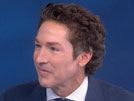
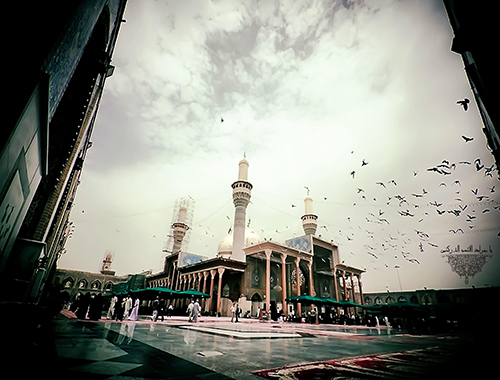

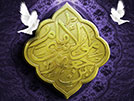
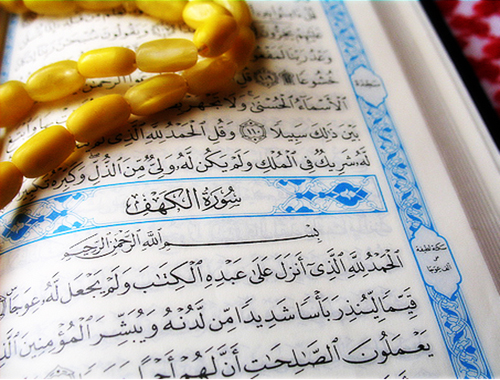
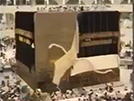
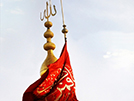
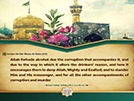

Comments
I actually like what you've acquired right here, really like what you are saying and the best way by which you are saying it.
You're making it enjoyable and you continue to take care of to stay it
smart. I can't wait to learn far more from you.
This is actually a terrific site.